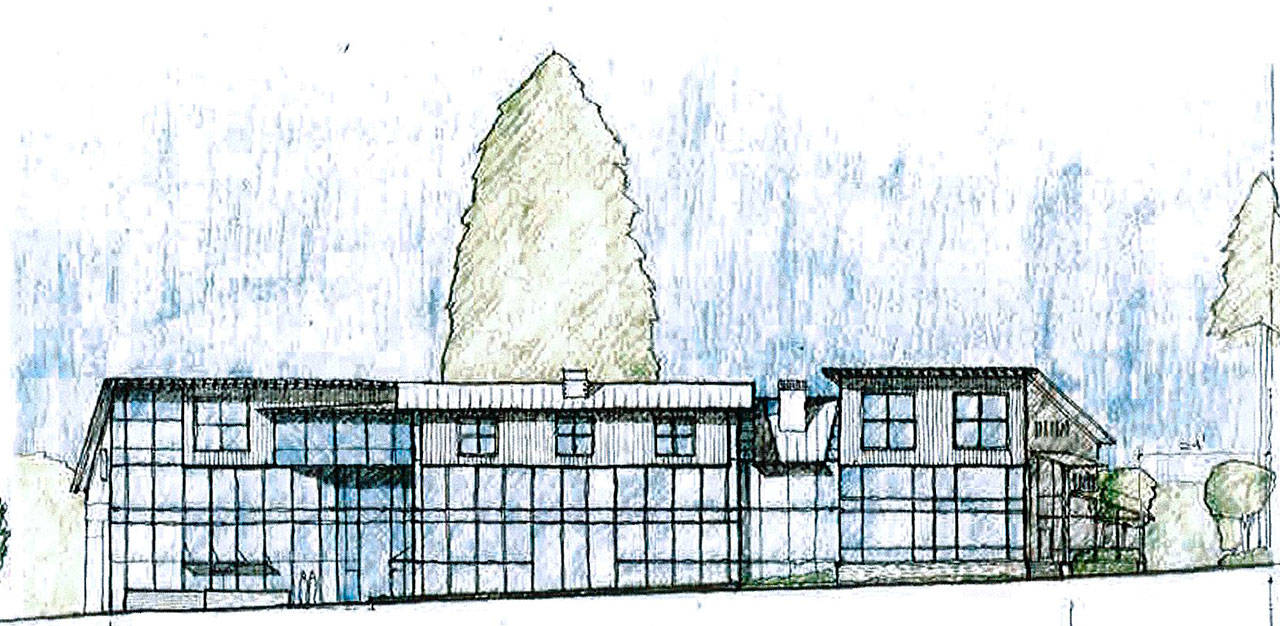In his decision Friday to approve the plan for an 87-room hotel in downtown Winslow, Bainbridge Island Hearing Examiner Ted Hunter said he was not obligated to follow the recommendation of the city’s planning commission on the project.
Last year, the planning commission unanimously voted to recommend denial of the proposed Winslow Hotel. Critics of the hotel claimed it would add to noise, traffic and parking troubles in downtown Winslow, and said the hotel would ruin the small-town character of Bainbridge Island.
In his decision Friday, however, Hunter said the hotel project fits with city regulations and Bainbridge’s long-range development plans.
Bainbridge’s planning staff and chief, as well as the city’s Design Review Board, said before the January public hearing on the hotel that the development complies with city development rules and should be approved by the hearing examiner.
Opponents of the hotel have maintained that city planners and the Design Review Board were wrong in their appraisals of the hotel.
Hunter, in his decision, noted that multiple conditions of development have been added to the proposal that will ensure it complies with growth plans for Winlsow.
“City staff determined that, with 83 conditions of approval, the proposal would be consistent with the goals and policies of the Winslow Master Plan by providing an enhanced pedestrian experience, through frontage improvements and better connectivity to retail spaces, the ferry, public facilities, open spaces, and residential areas, and by expanding the customer base for local businesses, providing community gathering spaces, and using sustainable building practices,” Hunter wrote in his decision, which spanned 54 pages but, with multiple exhibits, stretched to 63 total pages.
While opponents have claimed the hotel project does not fit with the zoning downtown, and also violates building heights and other building rules, Hunter, in his decision, said that was not the case.
“With the recommended conditions, the proposed development complies with the criteria for site plan/design review approval. The site plan and design is in conformance with applicable code provisions and development standards of the MUTC-CC zone,” Hunter wrote.
“Some public testimony alleged that the proposed buildings violate several building design guidelines, including lack of pitched roofs, lack of elements to avoid monolithic facades, and lack of appropriate setbacks,” Hunter wrote.
But he also said that the city’s rules for projects in the downtown core were meant to be flexible.
“Unlike fixed zoning standards, the design guidelines for development in the MUTC zone are intended to be flexible,” he wrote.
“The introductory section of the design guidelines applicable to the MUTC zone states that ‘(d)esign guidelines are not intended to be like quantitative, fixed zoning standards. They are to be applied with an attitude of flexibility,’” he added.
Critics of the hotel repeatedly asked Hunter to follow the planning commission’s decision on the hotel and reject the proposal.
In his decision, Hunter said that was not a legal requirement.
“The hearing examiner has no obligation to follow a recommendation of denial made by the planning commission. He may choose to do so, but is not required by law to do so,” Hunter wrote.
Hunter also noted that the ordinance that empowers the hearing examiner also apparently does not give the examiner the ability to remand a project back to the city for further scrutiny — despite city-adopted rules that spell out how the examiner conducts reviews of development projects.
It was legally questionable, he said.
Hunter suggested the city amend its hearing examiner ordinance to allow the examiner to send back proposals for more reflection.
“Although authority to remand an application is provided in the rules, because the authority to remand is not expressly provided for in ordinance, it is not entirely certain if the hearing examiner has that authority,” Hunter wrote in his decision.
“The preference of the hearing examiner would be for the city to clarify that authority by amending its ordinances to allow for a remand, or at a minimum, issue a code interpretation to that effect. Without clear authority to remand for specific actions, the hearing examiner is limited to the outcomes of approval or denial,” he added.
Winslow Hotel is proposed for two lots at 251 Winslow Way West in the city’s downtown core, and the project is being pursued by Madison Avenue Development.



